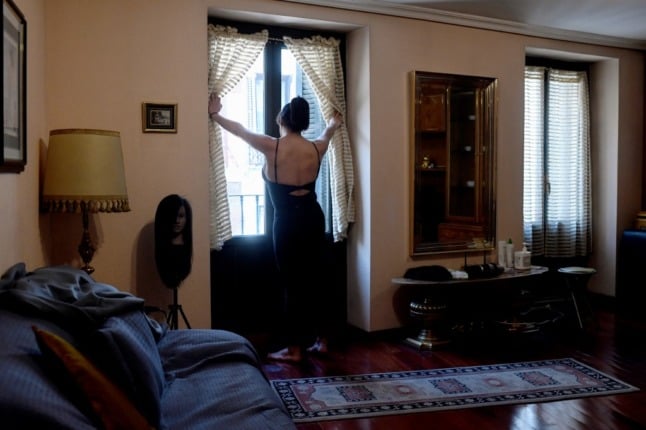But for many, his work as a professional “sexual assistant” treads a thin line between a caring profession and prostitution.
Aged 50 and married with three children, Jacques is one of the rare Swiss assistants to openly speak out about the services he provides. Even in Switzerland, where the job of sexual assistant has had a proper legal status for more than eight years, the subject remains taboo.
A qualified physiotherapist, with a speciality in urinary and gynaecological issues, Jacques says there is “still a lot of educating to do on this subject” of sexual assistance for the disabled, which is often misunderstood.
“Disabled people are still people: they have fantasies, expectations, desires and frustrations,” he said.
The job of the sexual assistant is to respond to these needs and give people who might otherwise have little chance of being sexually active due to their disability the opportunity to feel like a normal human being.
Some sexual assistants show a disabled client how to touch and be touched, others bring the person to orgasm. There is usually a lengthy assessment of what a person’s needs are and what he can actually physically achieve with his disability before anything physical takes place.
Across town, far away from Zurich’s red light districts, Michelle Gut, an elegant masseuse with long blonde hair, greets clients — many of whom are mentally or physically disabled — at her chic and comfortable Andana massage parlour. A masseuse since the 1990s, Michelle went on to qualify for legal status as a sexual assistant to give disabled clients “the sexual tenderness they are missing”.
“It is not easy to have a normal private life when you are handicapped,” she said. “Some people just use pornography, others don’t know anything about sexuality at all as they have no experience of it.”
Only around a dozen people in Switzerland are trained to give this experience. The training is handled by specialist organisations after a rigorous selection process. One of the requirements stipulates that working as an assistant must not be someone’s main job, but rather a secondary line of work.
“It is not a profession in itself, you even have to prove that you have a main profession,” explained Catherine Agthe Diserens, a sex educator who trains sexual assistants. She is also president of the Swiss Sexuality and Disability charity SEHP, which encourages people with disabilities to be sexually active.
Assistance, not prostitution
Sexual assistants can also be found in the Netherlands, Germany and Denmark but in other countries, such as France, the job does not yet have a proper legal status. French disabled rights groups have repeatedly raised the issue in the last year, urging official recognition for sex assistants and, significantly, state funding for their services.
In Switzerland, a sexual assistant has a status similar to that of a prostitute, rather than a carer, since services are paid for and the cost is met entirely by the client.
Michelle charges €162 (200 francs; $222) an hour for the disabled and €220 for able-bodied clients, and offers services ranging from classic massage to “erogenous zone massage”, which equates to masturbation, she said.
Penetration is not allowed though, she added adamantly. “I have some good contacts who are prostitutes and I know some sexual assistants who will go further so if a client wants more, I put them in touch.”
Although prostitutes do receive disabled clients, sexual assistants are better viewed by “parents and heads of institutions”, according to Diserens at the charity SEHP.
The reason, she said, is that disabled clients may need “more time and contact” than they get with prostitutes who can be rather “troubled” by certain disabilities.
Using a recognised sexual assistant removes the awkwardness of the situation for both parties, and often for the family too, noted Arnould.
“Is it acceptable that the mother of a young man with Down’s syndrome has to help him masturbate every week?” he asked.
Nevertheless the role continues to be stigmatised as Jacques knows all too well.
“There are some people who disapprove of my work as a sexual assistant and refuse to be treated by me. But others think that the work is good.
“People who stigmatise us should be honest enough to go and find out more about sexual assistance and have some empathy,” he said.


 Please whitelist us to continue reading.
Please whitelist us to continue reading.
Member comments